Identifying Tax Preparer Red Flags
Choosing a tax preparer is an important decision, as they will be handling your sensitive financial information. It is important to choose a preparer who is qualified, experienced, and trustworthy. There are a few red flags that you should look out for when choosing a tax preparer, and it is important to avoid these preparers in order to protect yourself and your finances.

1. The preparer does not have a Preparer Tax Identification Number (PTIN).
All tax preparers who are paid to prepare federal tax returns must have a PTIN. The IRS issues PTINs to individuals who have passed a competency test and who meet certain other requirements. You can verify that a preparer has a valid PTIN by checking the IRS’s Directory of Federal Tax Return Preparers.
2. The preparer refuses to sign your tax return.
The preparer must sign your tax return in order for it to be valid. If the preparer refuses to sign your return, it is a red flag that they may not be qualified or trustworthy.
3. The preparer bases their fee on the size of your refund.
Tax preparers should charge a flat fee or an hourly rate for their services. If a preparer bases their fee on the size of your refund, it is a red flag that they may be incentivized to prepare your return in a way that maximizes your refund, even if it is not accurate.
4. The preparer makes promises that sound too good to be true.
If a preparer promises you that they can get you a huge refund or that they can save you a lot of money on your taxes, it is a red flag that they may be making unrealistic promises. There is no such thing as a guaranteed tax refund, and any preparer who promises you one is likely not being honest with you.
5. The preparer is not available to answer your questions.
A good tax preparer should be available to answer your questions about your tax return and about tax laws in general. If a preparer is not available to answer your questions or if they are evasive when you ask questions, it is a red flag that they may not be qualified or trustworthy.
Other red flags to look out for:
- The preparer is not located in a permanent office.
- The preparer does not have a good reputation.
- The preparer has a history of tax fraud or other financial crimes.
- The preparer is pressuring you to sign your tax return without reviewing it carefully.
- The preparer is trying to sell you other financial products or services.
If you notice any of these red flags when choosing a tax preparer, it is best to avoid that preparer. There are many qualified and trustworthy tax preparers out there, so there is no need to risk your finances by working with a preparer who may not be legitimate.

How to find a qualified tax preparer
There are a few things you can do to find a qualified tax preparer:
- Ask for recommendations from friends, family, or colleagues.
- Check with local professional organizations, such as the American Institute of Certified Public Accountants (AICPA) or the National Association of Enrolled Agents (NAEA).
- Use the IRS’s Directory of Federal Tax Return Preparers to find preparers in your area.
Once you have found a few potential preparers, be sure to interview them before hiring them. Ask them about their experience, qualifications, and fees. Be sure to also ask them how they handle complex tax situations and how they keep your information confidential.
Tips for working with a tax preparer
Once you have hired a tax preparer, there are a few things you can do to ensure a smooth and successful tax preparation process:
- Gather all of your tax documents well in advance of your appointment with your preparer.
- Be prepared to discuss your tax situation with your preparer in detail.
- Ask questions about any deduction or credit that your preparer is claiming on your behalf.
- Review your tax return carefully before signing it.
If you have any concerns about your tax preparer or your tax return, do not hesitate to ask questions or to seek a second opinion from another tax preparer.
Choosing a tax preparer is an important decision, and it is important to avoid preparers who may not be qualified or trustworthy. By looking out for the red flags listed above and by following the tips provided in this blog post, you can find a qualified tax preparer who will help you file your taxes accurately and on time.
If you’d like to discuss a strategy for your small business and help you on your tax, Book your consultation with us today!


